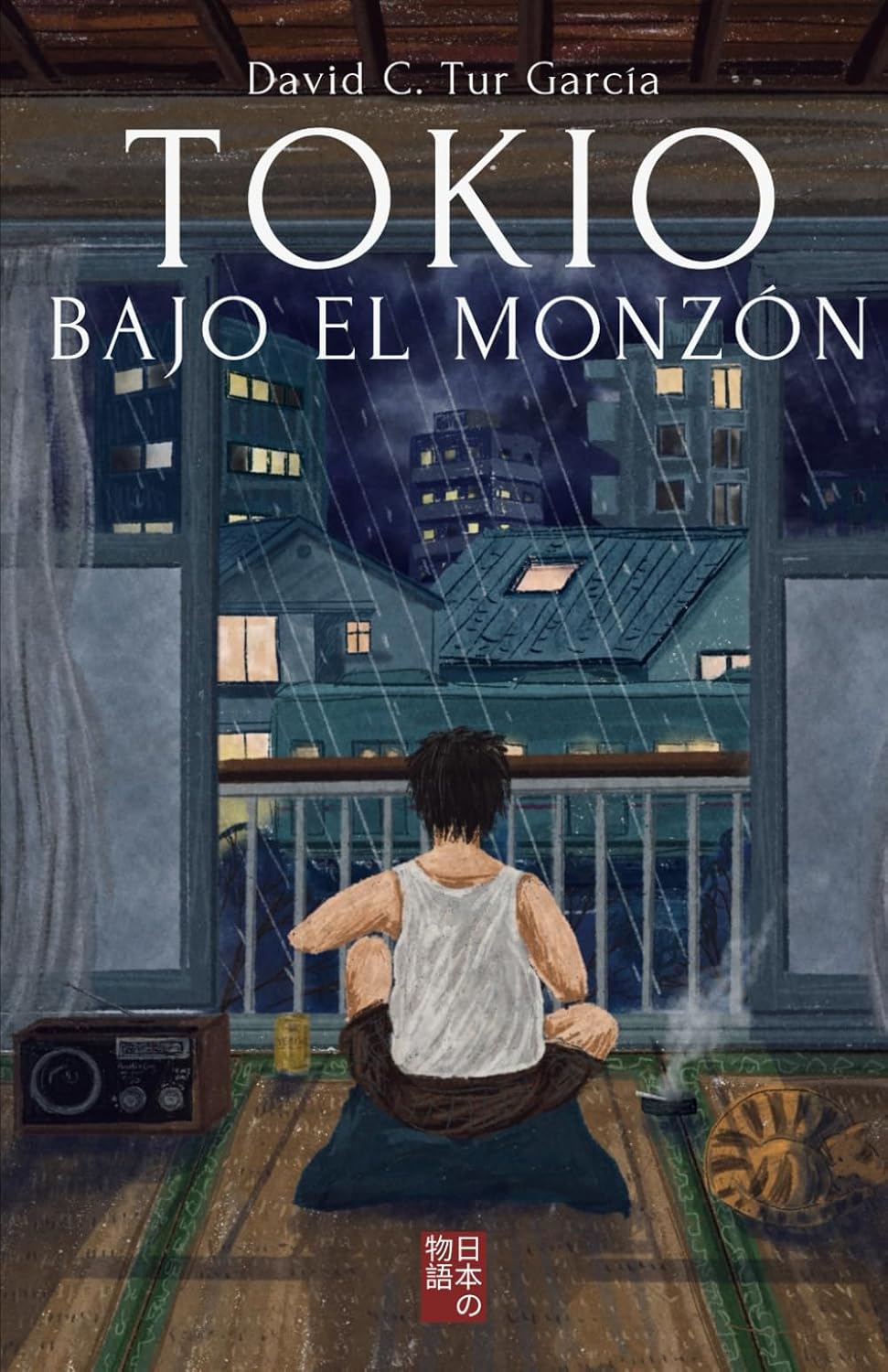Review: Where the Rain Hides Us: Reflections on Tokio bajo el monzón
2 comments
Hello everyone!
Today I turned the final page of Tokyo bajo el monzón by David C. Tur García — and honestly, I’ve been sitting quietly with my thoughts for a while, just letting the weight of the story settle. It’s not often a book pulls you into a city as vibrant and emotionally distant as Tokyo, only to show you how loneliness can thrive even in the busiest of places. But that’s exactly what this novel does , gently, steadily, and with an undeniable sense of melancholy.

Create the image by Adobe photoshop
This isn’t a book filled with action or grand epiphanies. It’s not about Tokyo as a postcard city. It’s about Yasu ,a man who seems to have done everything right by traditional standards: the education, the job, the house, the family. And yet, like so many people quietly enduring lives that look perfect from the outside, he’s aching inside. It’s the kind of existential sadness that doesn’t scream, it hums , low, constant, and impossible to ignore.
The writing is sparse in a way that fits the story perfectly. Tur García doesn’t waste words , he lets the silences speak, the rainy nights stretch out, and the gray days weigh down on you just as they do on Yasu. At first, I wasn’t sure how much I connected with the main character. He’s distant, frustrated, often hard to read. But that’s kind of the point. He’s a man raised in expectations and social rigidity, slowly unraveling in a city that’s both familiar and alien to him.
There’s a quiet rebellion in this book. Not the kind that makes headlines ,but the inner one, the more difficult one. Yasu has to lose everything he thought defined him in order to figure out who he actually is. And that journey takes him to the darker corners of Tokyo , emotionally, socially, and physically. He meets people who have fallen through the cracks, who are also searching for something that feels real. That part of the book reminded me a lot of Murakami’s atmosphere, but without the surrealism , just the rawness of human emotion and fleeting connections.
What I really appreciated is how Tokio bajo el monzón challenges the romanticized version of Japan we often see. It’s not neon signs and cherry blossoms here , it’s the daily grind, the emotional isolation, and the dissonance between appearance and reality. And it’s not bitter, just honest.
If I had to critique anything, maybe I wanted more from some of the secondary characters , a little more depth, a little more exploration. But then again, this is Yasu’s story, and perhaps part of his struggle is precisely how disconnected he is from others. The world around him is there, but distant, just out of reach , much like happiness itself.

Source
I’d recommend this book to readers who are drawn to introspective, character-driven stories. Especially if you enjoy narratives that don’t spoon-feed you emotions, but instead let you feel them slowly, over time. It’s the kind of book you read on a quiet evening, maybe while it’s raining, and you find yourself reflecting more than you expected.
Rating: 4/5.
Not because it’s lacking , but because it’s a quiet book, and quiet books take time to fully sink in. I think parts of it will stay with me for longer than I realize now. And for a debut, it's remarkably mature and emotionally tuned. David C. Tur García is definitely an author I’ll be watching from now on.
Until the next read. 🌧📖
Ok
See you Again in a New vlog.
Thanks for being with me.
Please, Follow Me
@asad44



Comments